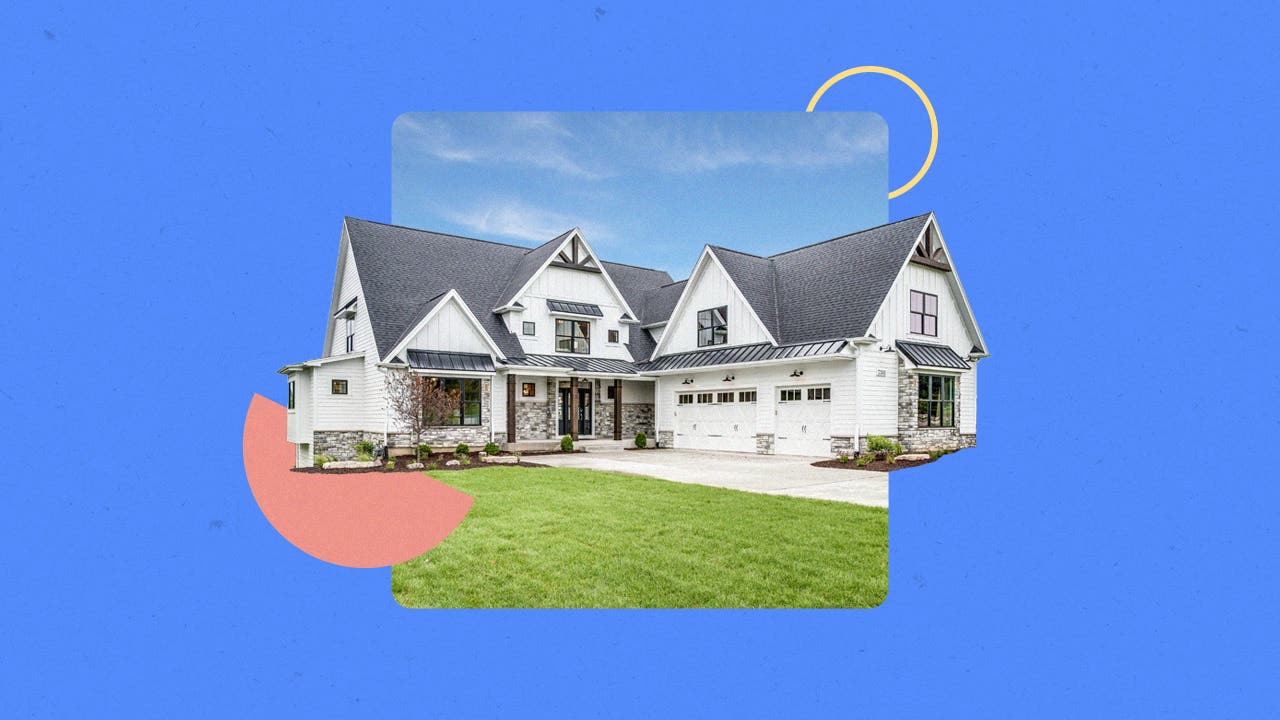What is owner financing?




Key takeaways
- Owner financing is an arrangement in which a homeowner or seller, rather than a bank or mortgage lender, extends a loan to a buyer.
- The owner financing contract can be structured in a number of ways, including as a second mortgage, a rent-to-own contract or a wraparound loan.
- Owner financing tends to benefit the seller more than the buyer, but it can be a viable option for buyers who don’t qualify for a traditional mortgage.
What is owner financing?
Owner financing — sometimes known as creative financing, seller financing or a purchase-money mortgage — is a private arrangement in which a home seller provides some or all of the financing for the home’s purchase directly to the buyer. This arrangement is most common in transactions involving family members or parties that know each other, but can also come into play for any buyer who can’t qualify for a traditional mortgage, or enough of a mortgage to afford the home.
How does owner financing work?
Owner financing can take a variety of forms, including a second mortgage, land contract, rent-to-own agreement or wraparound mortgage. Often, the seller retains the deed to the property until the buyer pays for it in full, and the buyer signs a promissory note and either a mortgage or deed of trust.
Owner financing is typically a short-term arrangement, usually lasting five to 10 years. In many cases, the buyer makes an upfront deposit or down payment, as well as pays for other expenses, such as:
- Title search
- Title insurance
- Homeowners insurance premiums
- Property taxes
Example of owner financing
Say a buyer is interested in a home priced at $380,000 and plans to put down $38,000, or 10 percent. Due to credit or financial circumstances, the buyer learns that they can only qualify for a mortgage up to $100,000. The seller agrees to finance the outstanding $242,000 at a fixed interest rate for 10 years, with a balloon payment (calculated at a 30-year amortization) for the remaining balance due after a decade.
Owner financing requirements
The requirements for an owner financing contract depend on how it’s structured. In general, the terms of the arrangement should be outlined in a promissory note and include the following:
- Promise to pay
- Purchase price
- Deposit or down payment amount
- Interest rate
- Loan amount and term
- Amortization and monthly repayment schedule
- Balloon payment, if applicable
- Consequences if buyer fails to pay or pays late
- Homeowners insurance and property tax details
The buyer and seller should each have an attorney review the agreement, at the least, to ensure protections on both sides.
Types of owner financing
There isn’t just one way to establish an owner financing contract. Here are some common setups.
Second mortgage
If the buyer only qualifies for a portion of the funds through a traditional mortgage, the seller could extend a second mortgage for the remaining financing, usually with a higher interest rate, a shorter loan term and a lump-sum balloon payment.
“Typically, the seller will not hold that mortgage for longer than five or 10 years,” says Chris McDermott, real estate investor, broker and co-founder of Jax Nurses Buy Houses in Jacksonville, Fla. “After that time, the mortgage commonly comes due in the form of a balloon payment owed by the buyer.”
Learn more: What is a second mortgage?
Land contract
In a land contract agreement, the buyer pays the seller directly in installments and receives the deed to the property once they’ve paid the purchase price in full. This approach eliminates the expenses of closing costs and loan-related fees, making it a potentially faster and cheaper option than a traditional mortgage.
Learn more: What is a land contract?
Lease-purchase or rent-to-own
In this arrangement, the buyer rents the home with an option to buy at a set price after a certain period of time. With this approach, some of the monthly rent payments will be applied to the property’s final purchase price. In addition, the buyer typically needs to make an upfront deposit, which will be forfeited if they ultimately decide not to buy.
Learn more: What is rent-to-own?
Wraparound mortgage
If a seller still has a mortgage on the home, they could offer a wraparound loan, meaning the buyer’s mortgage “wraps around” theirs. In effect, the buyer makes payments toward the seller’s mortgage. The seller can charge a higher interest rate on the wraparound and pocket the difference. In this type of arrangement, the seller must first obtain permission from their lender before proceeding.
Learn more: What is a wraparound mortgage?
Pros and cons of owner financing for buyers

Pros
- Flexible credit and/or down payment requirements
- No need to apply for a mortgage or undergo underwriting
- Faster and less expensive closing
- An option for self-employed people who have a hard time proving income to a bank

Cons
- Challenging to find a willing seller
- Higher interest rates and/or a balloon payment, depending on agreement
- Responsible for keeping up with homeowners insurance and property tax payments
- No benefit to credit score/credit history if seller doesn’t report payments
Pros and cons of owner financing for sellers

Pros
- Attract more buyers if offers aren’t coming in
- Faster closing
- Earn income from buyer’s interest payments
- Potential to defer capital gains

Cons
- Risk of loss if the buyer doesn’t pay or damages the property
- Need to vet the buyer yourself
- Costs and burden of drawing up contract and administering the debt
- No or lower proceeds up front to pay off mortgage or buy new home
What to know about owner financing today
Owner financing can benefit buyers who aren’t eligible for a mortgage from a traditional lender, or those who only qualify for some of the financing needed for the purchase. It also gives sellers the opportunity to earn income via interest and, in a buyer’s market, potentially attract more offers.
Here are some scenarios when owner financing might make sense:
- The buyer’s credit or finances aren’t sufficient to qualify for traditional financing.
- The buyer doesn’t have enough for a down payment.
- The home’s purchase price is higher than the appraised value, necessitating the buyer to cover the shortfall with additional funds.
- The parties want to close quickly or save on closing costs.
- The parties prefer more flexible terms than what traditional lenders offer.
- The transaction involves a serious fixer-upper or another type of unique property that traditional lenders aren’t willing to finance.
If you can’t get the financing you need from a bank or mortgage lender, an experienced real estate agent can help you find properties for sale with owner financing.
If you decide to go the owner financing route as a seller, make sure to determine your non-negotiables.
“Be sure to require a substantial down payment — 15 percent if possible,” McDermott says. “Find out the buyer’s position and exit strategy, and determine what their plan and timeline is. Ultimately, you want to know the buyer will be in the position to pay you off and refinance once your balloon payment is due.”
If you’re on the other end of the transaction as the buyer, it’s crucial to review the owner financing contract with an attorney.
“It’s also a good idea to revisit a seller financing agreement after a few years, especially if interest rates have dropped or your credit score improves — in which case you can refinance with a traditional mortgage and pay off the seller earlier than expected,” says Andrew Swain, co-founder of Sundae, a San Francisco-headquartered residential real estate marketplace.
FAQ
Why we ask for feedback Your feedback helps us improve our content and services. It takes less than a minute to complete.
Your responses are anonymous and will only be used for improving our website.
You may also like

What is an LLC loan and how does it work?

What does a real estate attorney do?

